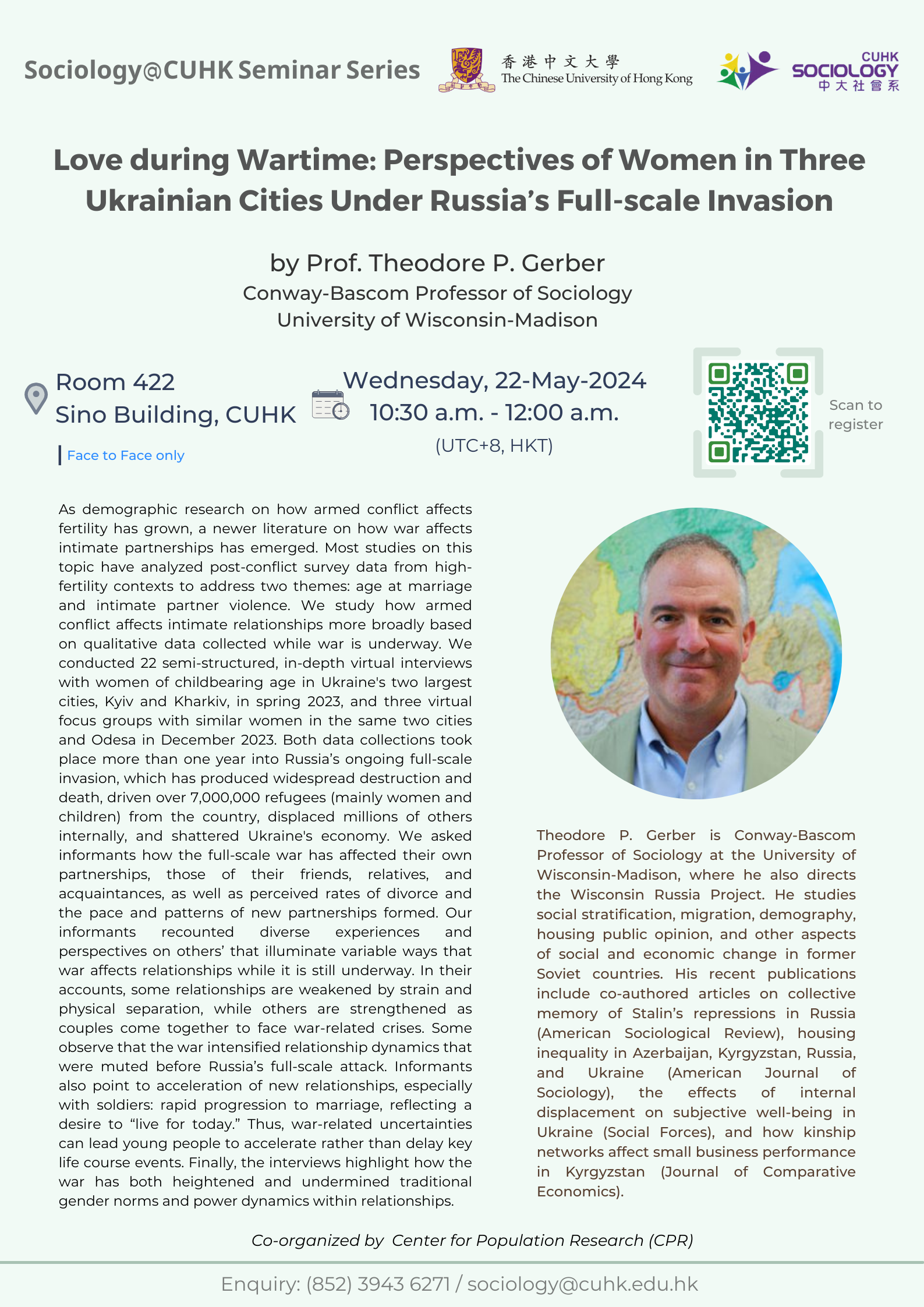
Conway-Bascom Professor of Sociology
Director, Wisconsin Russia Project (https://russiaproject.wisc.edu/)
University of Wisconsin-Madison
The Department of Sociology is pleased to announce a forthcoming seminar: Love during Wartime: Perspectives of Women in Three Ukrainian Cities Under Russia’s Full-scale Invasion, by Prof. Theodore P. Gerber.
Abstract:
As demographic research on how armed conflict affects fertility has grown, a newer literature on how war affects intimate partnerships has emerged. Most studies on this topic have analyzed post-conflict survey data from high-fertility contexts to address two themes: age at marriage and intimate partner violence. We study how armed conflict affects intimate relationships more broadly based on qualitative data collected while war is underway. We conducted 22 semi-structured, in-depth virtual interviews with women of childbearing age in Ukraine’s two largest cities, Kyiv and Kharkiv, in spring 2023, and three virtual focus groups with similar women in the same two cities and Odesa in December 2023. Both data collections took place more than one year into Russia’s ongoing full-scale invasion, which has produced widespread destruction and death, driven over 7,000,000 refugees (mainly women and children) from the country, displaced millions of others internally, and shattered Ukraine’s economy. We asked informants how the full-scale war has affected their own partnerships, those of their friends, relatives, and acquaintances, as well as perceived rates of divorce and the pace and patterns of new partnerships formed. Our informants recounted diverse experiences and perspectives on others’ that illuminate variable ways that war affects relationships while it is still underway. In their accounts, some relationships are weakened by strain and physical separation, while others are strengthened as couples come together to face war-related crises. Some observe that the war intensified relationship dynamics that were muted before Russia’s full-scale attack. Informants also point to acceleration of new relationships, especially with soldiers: rapid progression to marriage, reflecting a desire to “live for today.” Thus, war-related uncertainties can lead young people to accelerate rather than delay key life course events. Finally, the interviews highlight how the war has both heightened and undermined traditional gender norms and power dynamics within relationships.
The format of the seminar is face-to-face only. Due to the venue’s capacity restriction, participants’ places will be reserved on a first-come-first-served basis.

